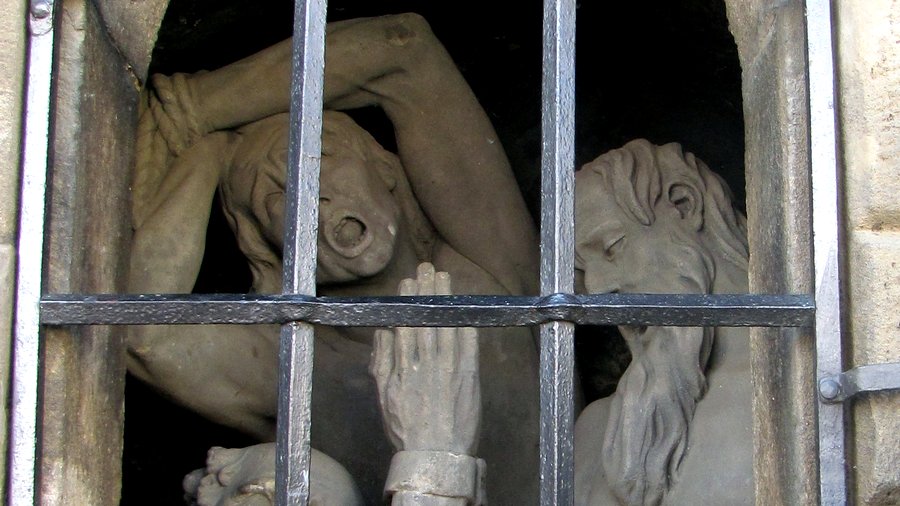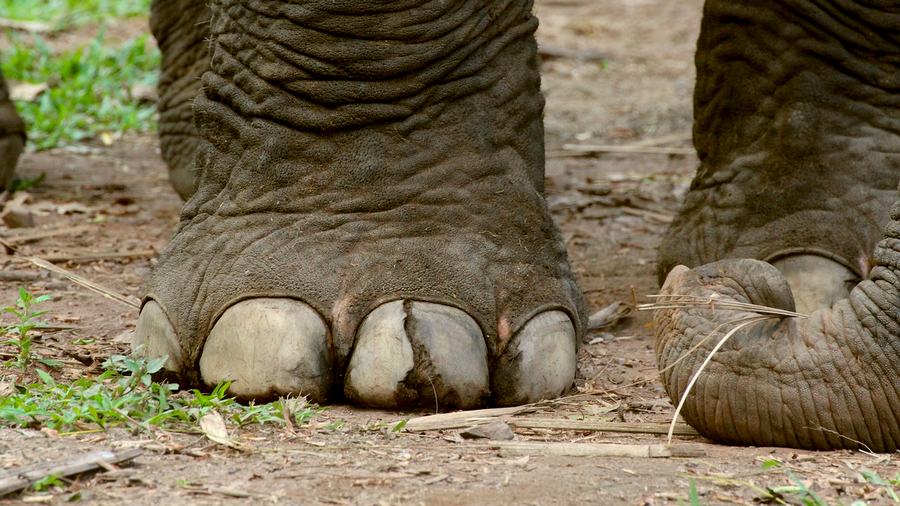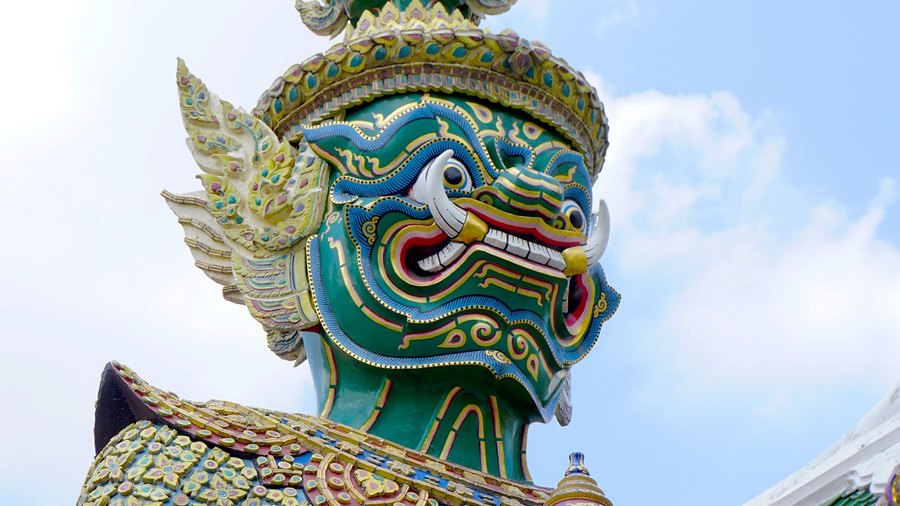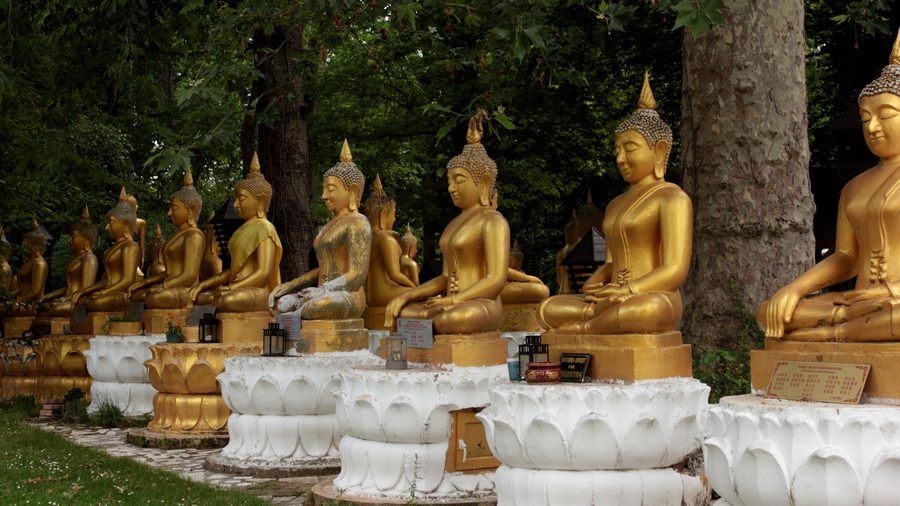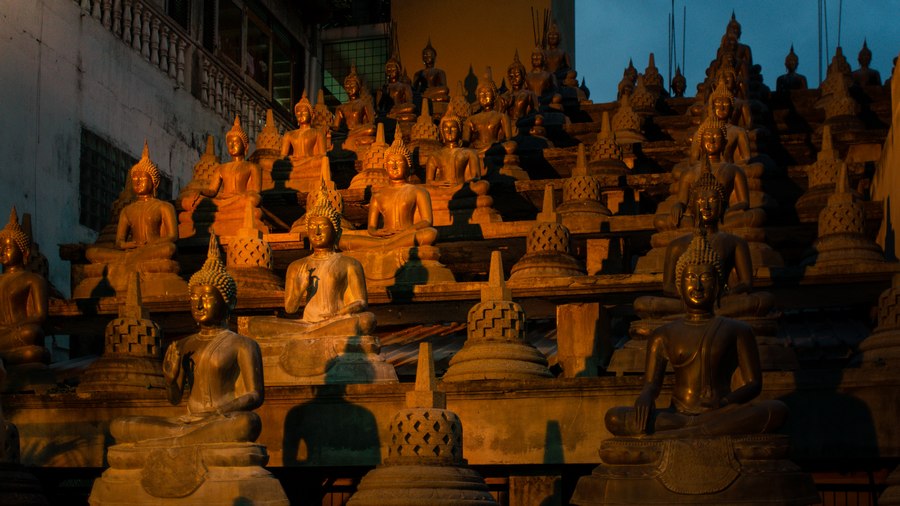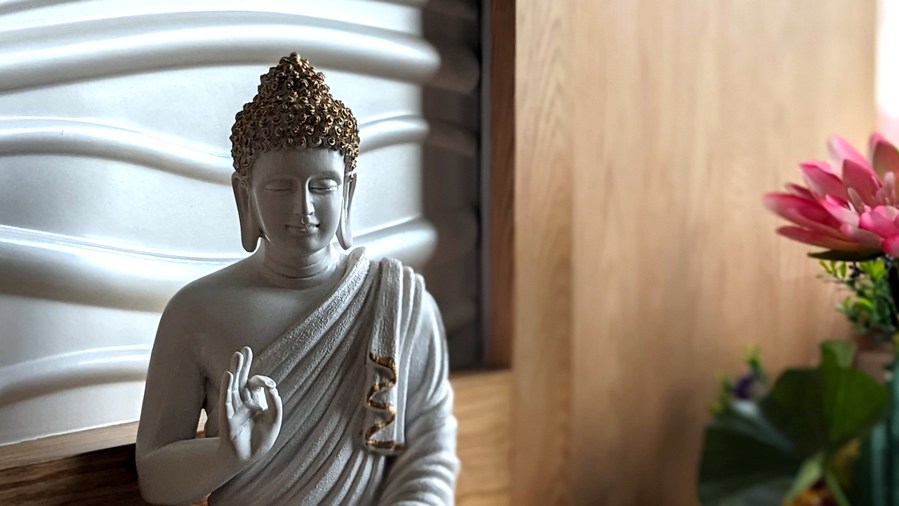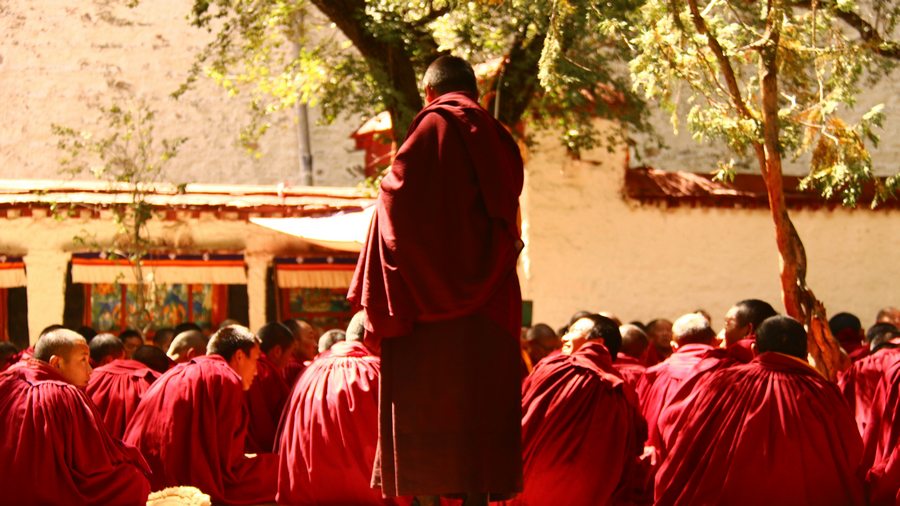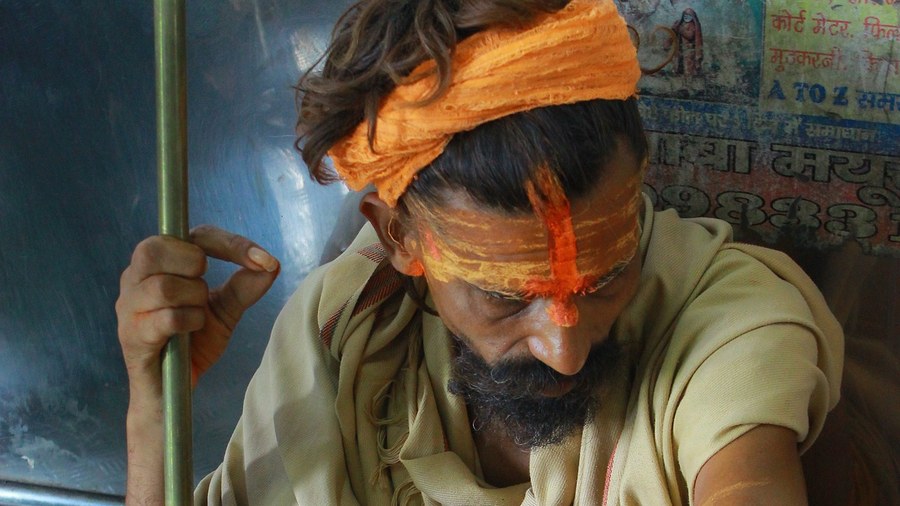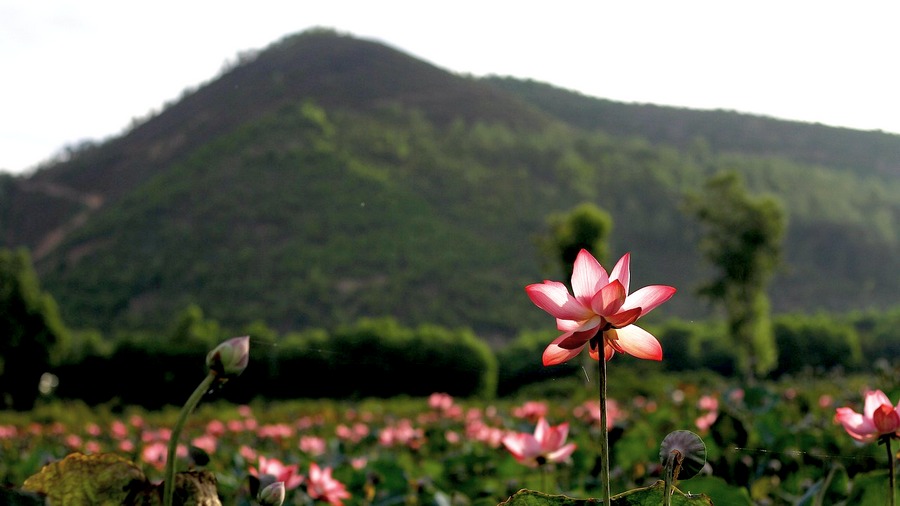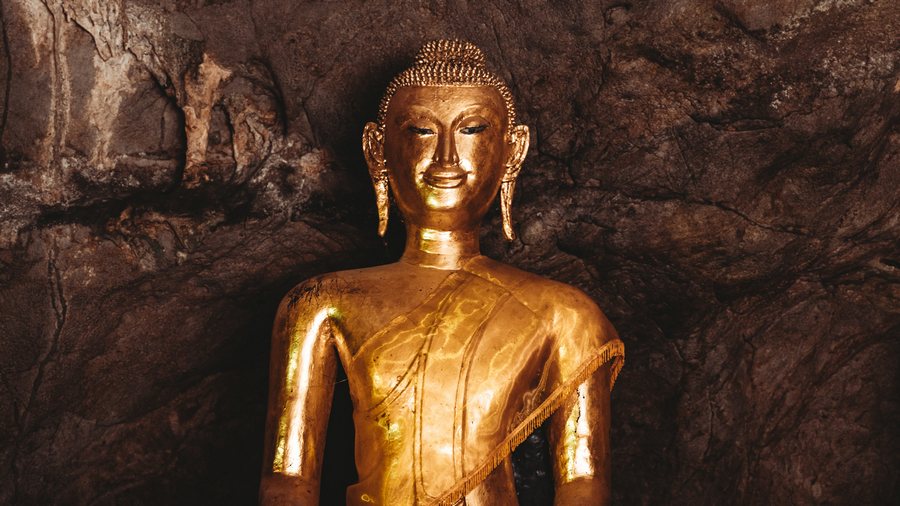[The selection today is unusually long. And even this is just part of a longer sutta. It explains with beautiful similes both psychic powers as well as the three knowledges attained by the Buddha on the night of his enlightenment. It is a conversation between Ven. Ānanada and the householder Subha.]
But what, Master Ānanda, was that spectrum of noble wisdom that the Buddha praised?”
“When their mind has become immersed in samādhi like this—purified, bright, flawless, rid of corruptions, pliable, workable, steady, and imperturbable—they project it and extend it toward knowledge and vision. They understand: ‘This body of mine is physical. It’s made up of the four primary elements, produced by mother and father, built up from rice and porridge, liable to impermanence, to wearing away and erosion, to breaking up and destruction. And this consciousness of mine is attached to it, tied to it.’
Suppose there was a beryl gem that was naturally beautiful, eight-faceted, well-worked, transparent, clear, and unclouded, endowed with all good qualities. And it was strung with a thread of blue, yellow, red, white, or golden brown. And someone with clear eyes were to take it in their hand and examine it: ‘This beryl gem is naturally beautiful, eight-faceted, well-worked, transparent, clear, and unclouded, endowed with all good qualities. And it’s strung with a thread of blue, yellow, red, white, or golden brown.’
In the same way, when their mind has become immersed in samādhi like this—purified, bright, flawless, rid of corruptions, pliable, workable, steady, and imperturbable—they project it and extend it toward knowledge and vision. This pertains to their wisdom.
When their mind has become immersed in samādhi like this—purified, bright, flawless, rid of corruptions, pliable, workable, steady, and imperturbable—they project it and extend it toward the creation of a mind-made body. From this body they create another body, physical, mind-made, complete in all its various parts, not deficient in any faculty.
Suppose a person was to draw a reed out from its sheath. They’d think: ‘This is the reed, this is the sheath. The reed and the sheath are different things. The reed has been drawn out from the sheath.’ Or suppose a person was to draw a sword out from its scabbard. They’d think: ‘This is the sword, this is the scabbard. The sword and the scabbard are different things. The sword has been drawn out from the scabbard.’ Or suppose a person was to draw a snake out from its slough. They’d think: ‘This is the snake, this is the slough. The snake and the slough are different things. The snake has been drawn out from the slough.’
In the same way, when their mind has become immersed in samādhi like this—purified, bright, flawless, rid of corruptions, pliable, workable, steady, and imperturbable—they project it and extend it toward the creation of a mind-made body. This pertains to their wisdom.
When their mind has become immersed in samādhi like this—purified, bright, flawless, rid of corruptions, pliable, workable, steady, and imperturbable—they project it and extend it toward psychic power. They wield the many kinds of psychic power: multiplying themselves and becoming one again; appearing and disappearing; going unimpeded through a wall, a rampart, or a mountain as if through space; diving in and out of the earth as if it were water; walking on water as if it were earth; flying cross-legged through the sky like a bird; touching and stroking with the hand the sun and moon, so mighty and powerful; controlling the body as far as the Brahmā realm.
Suppose a deft potter or their apprentice had some well-prepared clay. They could produce any kind of pot that they like. Or suppose a deft ivory-carver or their apprentice had some well-prepared ivory. They could produce any kind of ivory item that they like. Or suppose a deft goldsmith or their apprentice had some well-prepared gold. They could produce any kind of gold item that they like.
In the same way, when their mind has become immersed in samādhi like this—purified, bright, flawless, rid of corruptions, pliable, workable, steady, and imperturbable—they project it and extend it toward psychic power. This pertains to their wisdom.
When their mind has become immersed in samādhi like this—purified, bright, flawless, rid of corruptions, pliable, workable, steady, and imperturbable—they project it and extend it toward clairaudience. With clairaudience that is purified and superhuman, they hear both kinds of sounds, human and divine, whether near or far. Suppose there was a person traveling along the road. They’d hear the sound of drums, clay drums, horns, kettledrums, and tom-toms. They’d think: ‘That’s the sound of drums,’ and ‘that’s the sound of clay drums,’ and ‘that’s the sound of horns, kettledrums, and tom-toms.’
In the same way, when their mind has become immersed in samādhi like this—purified, bright, flawless, rid of corruptions, pliable, workable, steady, and imperturbable—they project it and extend it toward clairaudience. This pertains to their wisdom.
When their mind has become immersed in samādhi like this—purified, bright, flawless, rid of corruptions, pliable, workable, steady, and imperturbable—they project it and extend it toward comprehending the minds of others. They understand mind with greed as ‘mind with greed’, and mind without greed as ‘mind without greed’. They understand mind with hate … mind without hate … mind with delusion … mind without delusion … constricted mind … scattered mind … expansive mind … unexpansive mind … mind that is not supreme … mind that is supreme … immersed mind … unimmersed mind … freed mind … They understand unfreed mind as ‘unfreed mind’.
Suppose there was a woman or man who was young, youthful, and fond of adornments, and they check their own reflection in a clean bright mirror or a clear bowl of water. If they had a spot they’d know ‘I have a spot,’ and if they had no spots they’d know ‘I have no spots.’
In the same way, when their mind has become immersed in samādhi like this—purified, bright, flawless, rid of corruptions, pliable, workable, steady, and imperturbable—they project it and extend it toward comprehending the minds of others. This pertains to their wisdom.
When their mind has become immersed in samādhi like this—purified, bright, flawless, rid of corruptions, pliable, workable, steady, and imperturbable—they project it and extend it toward recollection of past lives. They recollect many kinds of past lives, that is, one, two, three, four, five, ten, twenty, thirty, forty, fifty, a hundred, a thousand, a hundred thousand rebirths; many eons of the world contracting, many eons of the world expanding, many eons of the world contracting and expanding. They remember: ‘There, I was named this, my clan was that, I looked like this, and that was my food. This was how I felt pleasure and pain, and that was how my life ended. When I passed away from that place I was reborn somewhere else. There, too, I was named this, my clan was that, I looked like this, and that was my food. This was how I felt pleasure and pain, and that was how my life ended. When I passed away from that place I was reborn here.’ And so they recollect their many kinds of past lives, with features and details.
Suppose a person was to leave their home village and go to another village. From that village they’d go to yet another village. And from that village they’d return to their home village. They’d think: ‘I went from my home village to another village. There I stood like this, sat like that, spoke like this, or kept silent like that. From that village I went to yet another village. There too I stood like this, sat like that, spoke like this, or kept silent like that. And from that village I returned to my home village.’
In the same way, when their mind has become immersed in samādhi like this—purified, bright, flawless, rid of corruptions, pliable, workable, steady, and imperturbable—they project it and extend it toward recollection of past lives. This pertains to their wisdom.
When their mind has become immersed in samādhi like this—purified, bright, flawless, rid of corruptions, pliable, workable, steady, and imperturbable—they project it and extend it toward knowledge of the death and rebirth of sentient beings. With clairvoyance that is purified and superhuman, they see sentient beings passing away and being reborn—inferior and superior, beautiful and ugly, in a good place or a bad place. They understand how sentient beings are reborn according to their deeds. ‘These dear beings did bad things by way of body, speech, and mind. They spoke ill of the noble ones; they had wrong view; and they chose to act out of that wrong view. When their body breaks up, after death, they’re reborn in a place of loss, a bad place, the underworld, hell. These dear beings, however, did good things by way of body, speech, and mind. They never spoke ill of the noble ones; they had right view; and they chose to act out of that right view. When their body breaks up, after death, they’re reborn in a good place, a heavenly realm.’ And so, with clairvoyance that is purified and superhuman, they see sentient beings passing away and being reborn—inferior and superior, beautiful and ugly, in a good place or a bad place. They understand how sentient beings are reborn according to their deeds.
Suppose there was a stilt longhouse at the central square. A person with clear eyes standing there might see people entering and leaving a house, walking along the streets and paths, and sitting at the central square. They’d think: ‘These are people entering and leaving a house, walking along the streets and paths, and sitting at the central square.’
In the same way, when their mind has become immersed in samādhi like this—purified, bright, flawless, rid of corruptions, pliable, workable, steady, and imperturbable—they project and extend it toward knowledge of the death and rebirth of sentient beings. This pertains to their wisdom.
When their mind has become immersed in samādhi like this—purified, bright, flawless, rid of corruptions, pliable, workable, steady, and imperturbable—they project it and extend it toward knowledge of the ending of defilements. They truly understand: ‘This is suffering’ … ‘This is the origin of suffering’ … ‘This is the cessation of suffering’ … ‘This is the practice that leads to the cessation of suffering’. They truly understand: ‘These are defilements’ … ‘This is the origin of defilements’ … ‘This is the cessation of defilements’ … ‘This is the practice that leads to the cessation of defilements’. Knowing and seeing like this, their mind is freed from the defilements of sensuality, desire to be reborn, and ignorance. When they’re freed, they know they’re freed.
They understand: ‘Rebirth is ended, the spiritual journey has been completed, what had to be done has been done, there is no return to any state of existence.’
Suppose that in a mountain glen there was a lake that was transparent, clear, and unclouded. A person with clear eyes standing on the bank would see the clams and mussels, and pebbles and gravel, and schools of fish swimming about or staying still. They’d think: ‘This lake is transparent, clear, and unclouded. And here are the clams and mussels, and pebbles and gravel, and schools of fish swimming about or staying still.’
In the same way, when their mind has become immersed in samādhi like this—purified, bright, flawless, rid of corruptions, pliable, workable, steady, and imperturbable—they project it and extend it toward knowledge of the ending of defilements. This pertains to their wisdom.
This is that spectrum of noble wisdom that the Buddha praised. And there is nothing more to be done.…”
Read the entire translation of Dīgha Nikāya 10 Subhasutta: With Subha by Bhikkhu Sujato on SuttaCentral.net. Or listen on PaliAudio.com or SC-Voice.net. Or explore the Pali on DigitalPaliReader.online.
Or read a translation in Deutsch, Srpski, Bengali, Hebrew, हिन्दी, Indonesian, Italiano, 日本語, ಕನ್ನಡ, မြန်မာဘာသာ, Norsk, Português, සිංහල, ไทย, Tiếng Việt, or 汉语. Learn how to find your language.

 Copyright: Creative Commons Zero (CC0) To the extent possible under law, Bhikkhu Sujato has waived all copyright and related or neighboring rights to his own translations on
Copyright: Creative Commons Zero (CC0) To the extent possible under law, Bhikkhu Sujato has waived all copyright and related or neighboring rights to his own translations on 

